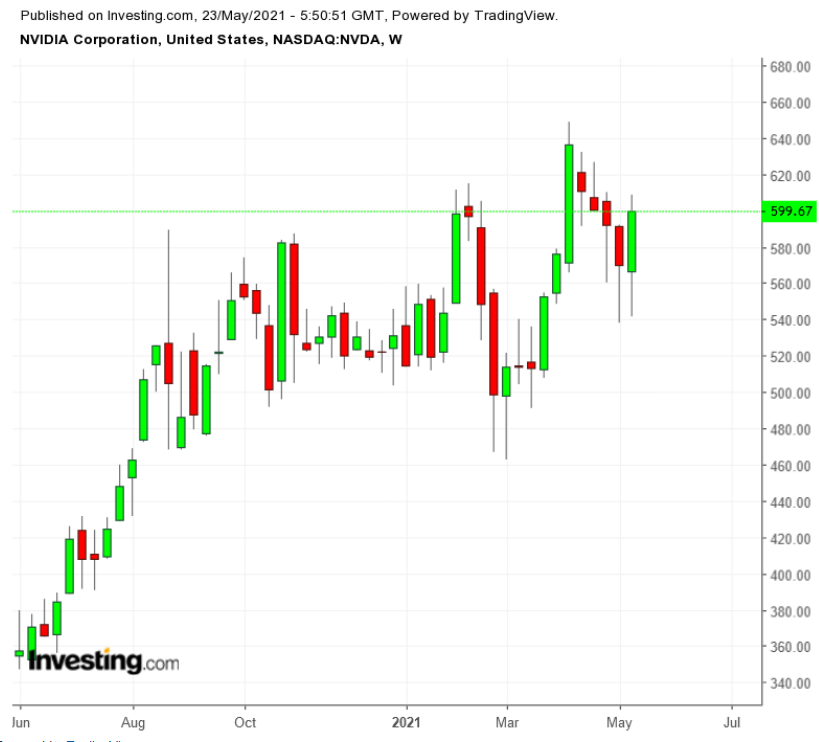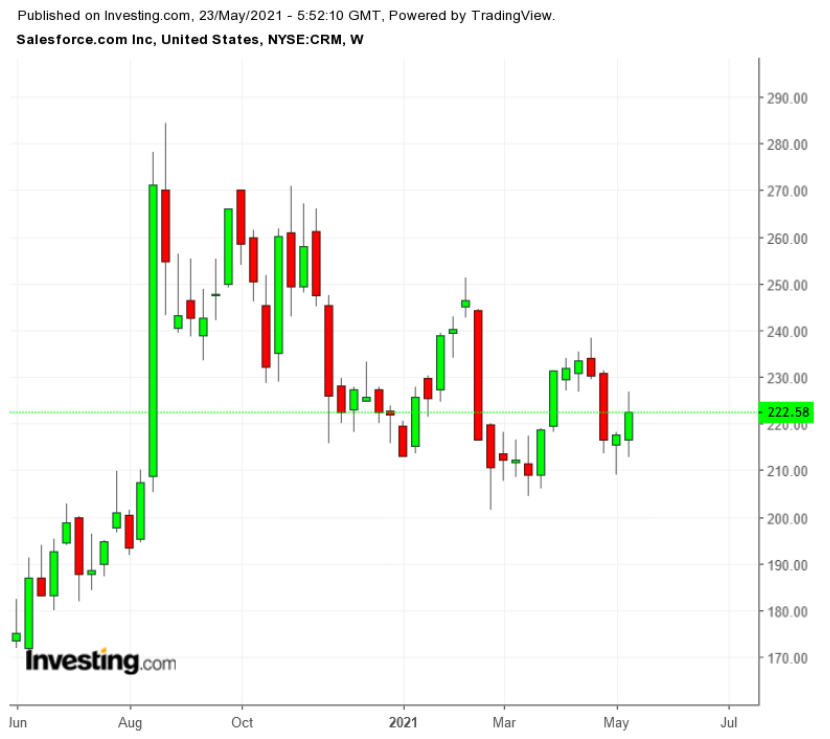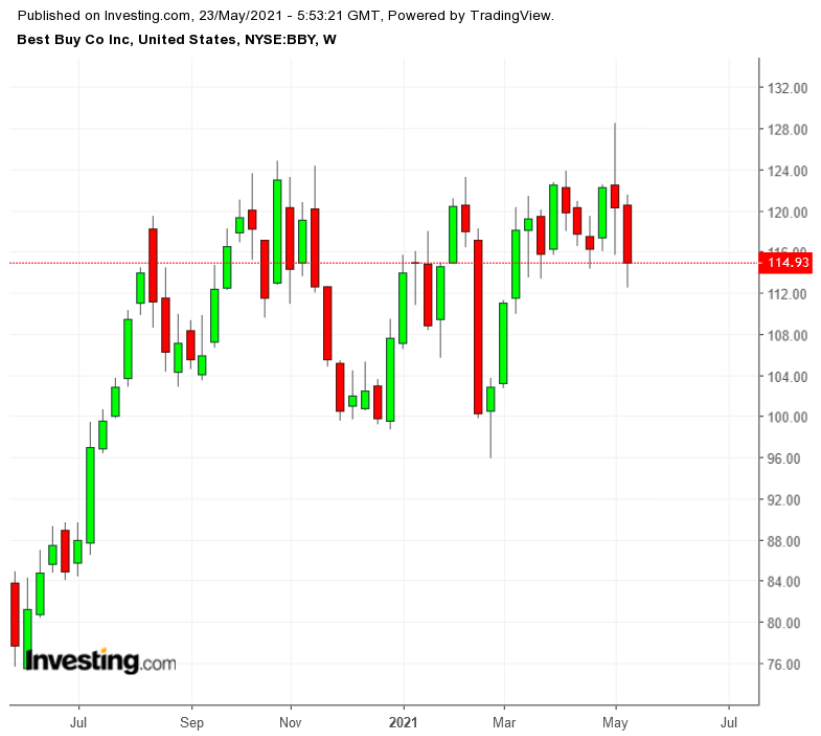Stock markets in the U.S. are likely to remain volatile during the upcoming week as investors focus their attention on cryptocurrencies which have become one of the key indicators to gauge the market’s risk appetite.
Bitcoin lost about 30% of its value at one point last week after China announced new regulations that soured the mood for risk assets. In another blow on Friday, China’s State Council reiterated its call to curtail Bitcoin mining and trading. The crypto market was already rattled earlier in the week by forced selling and possible U.S. tax consequences.
It remains unclear how the broader market will react if losses in the crypto market continue, but some analysts warn that investors should proceed with caution in this time of uncertainty. According to BCA Research strategist Anastasios Avgeriou:
“Some of these apparent liquidation pressures have spilled over to the S&P 500 and, given the recent tight positive correlation between Bitcoin and the SPX, warn that some caution is still warranted in the equity space, at least in the near-term.”
Aside from crypto risks, investors will also be watching earnings releases from some of the top U.S. companies which are among the last to report in the current cycle. Here are three such stocks which we're following:
1. NVIDIA Corporation
Semiconductor giant, NVIDIA Corporation (NASDAQ:NVDA) is scheduled to report its Q1 earnings on Wednesday, May 26 after the market close. Analysts expect the chipmaker to produce an EPS of $3.28 on revenues of $5.39 billion.

During the past three months, shares of NVIDIA have lost their momentum, as the chip industry has been struggling to overcome supply shortages amid soaring demand. The stock closed at $599.67 on Friday, after surging 88% during the past year.
The Santa Clara, California-based chipmaker is the biggest manufacturer of graphics chips used in personal computer gaming. Over the past few years, NVDA has successfully adapted its technology for the Artificial Intelligence market, creating a new multi-billion-dollar line of business.
In this earnings report, however, investors will be keen to know how the company is ramping up its production to counter the industry-wide shortages of chips. Many chip customers are struggling to meet the soaring demand for everything, including laptops, gaming consoles, and other gadgets which use chips.
2. Salesforce.com
Salesforce.com (NYSE:CRM), which sells enterprise software and cloud-based services for customer relationship management to corporate clients, will be reporting its quarterly earnings on Thursday, May 27, after the market closes.The software provider is forecast to report $5.89 billion in revenue and $0.88 of earnings per share.

The San-Francisco-based company disappointed investors in February when it missed analysts’ sales predictions. That time, however, it gave an upbeat forecast for the first quarter, suggesting customers had begun spending more on its software after slowdowns fueled by the pandemic.
Salesforce is in the process of acquiring Slack Technologies (NYSE:WORK), in a $27.7 billion deal announced last year, aiming to fuel growth through acquisitions. During the past quarter, Salesforce stock has fallen about 9%, underperforming the general market. It closed on Friday at $222.58.
3. Best Buy
Best Buy (NYSE:BBY), the big box electronics and technology chain with stores throughout the US and Canada, will also release Q1 earnings on Thursday, before the market opens. The retailer is expected to report $1.36 per share profit and $10.32 billion in revenue, according to analyst consensus.

Shares have rallied about 15% this year, outperforming the benchmark S&P 500, as Best Buy continues to benefit from Americans splurging on household electronics upgrades during the ongoing work-from-home environment. The stock closed on Friday at $114.93.
In order to keep that momentum going, Best Buy needs to show it can sustain the level of growth witnessed during the pandemic as the U.S. economy prepares to fully reopen this summer with COVID infections continue declining.
Although demand for its goods remains above normal levels, “there is a high level of uncertainty related to the impacts of the COVID-19 pandemic that makes it difficult to predict how sustainable these trends will be,” Chief Financial Officer Matt Bilunas told investors in February.
